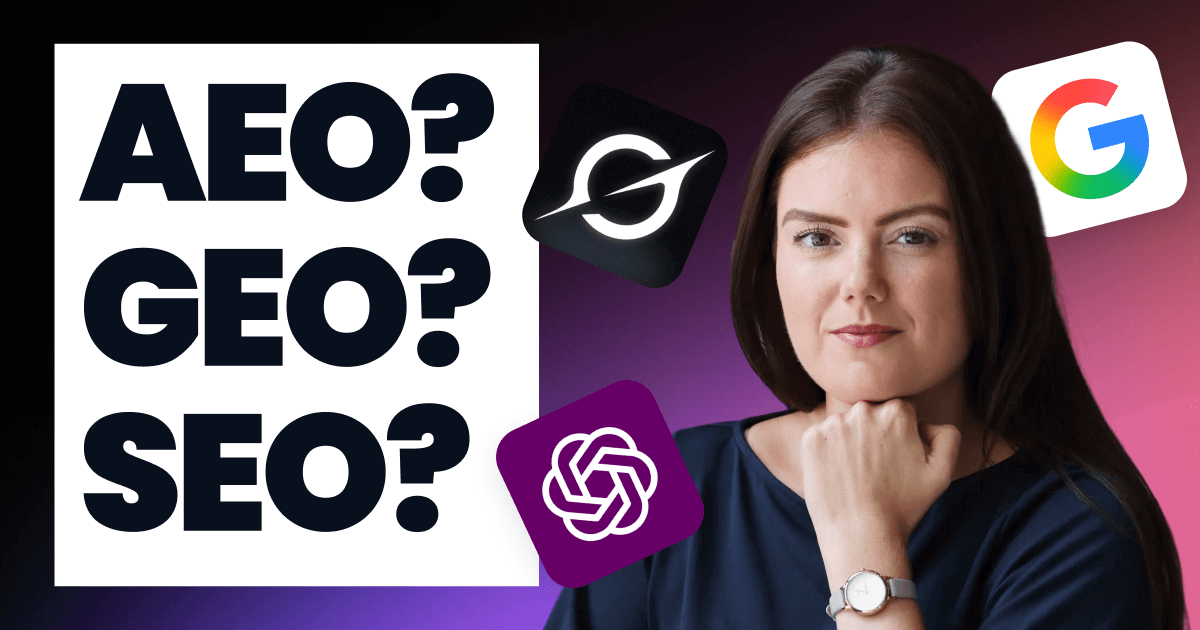
Marketing is a pivotal part of any business and isn’t something that should be compromised on or businesses run the risk of operating at a considerable disadvantage compared to their competitors.
With technology advancing at such an incredible pace, it’s likely that your marketing team is juggling multiple campaigns and channels all at once, so finding a marketing platform for a streamlined and efficient marketing process is absolutely essential.
We’ve put together a comparison of two of the biggest marketing platforms available today - HubSpot and Mailchimp - to enable businesses to make informed decisions based on their product offerings and features.
“All your marketing tools in one place with HubSpot”
Bring sales and marketing (smarketing) together in HubSpot.
What is HubSpot?
HubSpot is an inbound marketing, sales, and service platform that helps companies to attract visitors, convert leads, and close and retain customers.
HubSpot is one of the leaders in the digital marketing industry, with their blogs, videos and courses amongst the most popular in the industry. You may have heard of HubSpot as a company but not quite know what their software does, purely because it is so vast!
For the purpose of this article, we’re only going to focus on the Marketing Hub, but bear in mind that HubSpot also has Sales, Service, CMS and Operations Hubs.
“HubSpot is a CRM platform that brings everything scaling companies need to deliver a best-in-class customer experience into one place." - HubSpot
What features does HubSpot’s Marketing Hub offer?
- Email marketing
- Form Builder
- Landing pages
- Contact management
- Live chat
- Facebook, Google, and LinkedIn ads
- Traffic and conversion analytics
- Ad retargeting
- Marketing automation
- Landing page reporting
- Omni-channel marketing automation and custom workflows
- Blogging
- Custom reporting
- Account-based marketing
HubSpot’s growing success and popularity
It’s no surprise that HubSpot is used around the world - its results speak for themselves:
- 70% of HubSpot users saw an increase in lead to customer conversion rate
- HubSpot users had 2.1 times more visitors per month within one year
- HubSpot users had 2.5 times more leads per month within one year
- HubSpot has 200 integrations
- HubSpot has 86,000 users
- Active in 120 countries
What is Mailchimp?
Mailchimp is an all-in-one Marketing Platform for small businesses - note the small business aspect (we’ll come back to this later).
“Bring your audience data, marketing channels, and insights together so you can reach your goals faster—all from a single platform.” Mailchimp
Mailchimp is also up there with one of the best marketing softwares in the industry - it fulfils all of your requirements of email correspondence with customers, affiliates, and other stakeholders as well as providing analytics and data to determine the performance of a campaign.
What features does Mailchimp offer?
- Audience Management & Segmentation
- Creative Tools for Landing Page Development
- Lead Capture Forms
- Marketing Automation
- Campaign Templates
- A/B Testing
- Insights & Analytics
- Editable drag-and-drop templates
- Personalisation
- Basic list management
- Email analytics and reporting
- A free (under 2,000 email subscribers) account
Mailchimp’s growing success and popularity
Arguably, as one of HubSpot’s main competitors, Mailchimp sees impressive usage points - with a larger geographical span than HubSpot:
- Mailchimp sends 1 billion emails every single day!
- Deliverability is at around 84%, but their emails often end up in the Gmail ‘Promotions’ tab which aren’t read as often
- Over 800 integrations available for your account
- Mailchimp has 12 million users/is active in 200 countries
“Do it all with Mailchimp”
Originally designed and developed for the purpose of using email marketing to reach target audiences, Mailchimp has grown and evolved over the years thanks to user demand for a more integrated approach to marketing campaigns.

HubSpot vs Mailchimp
The question of which marketing platform to use is entirely dependent on your business goals, target audience and, most importantly, your budget.
One platform may serve a better purpose than another for different reasons so let’s take a look at their features in comparison to one another to help you to choose the best platform for your business.
1. Email Marketing - Templates and Design
Having a visually appealing campaign is crucial for businesses to attract and engage new customers, and to stand out against competitors. Marketing automation platforms are a great way to quickly and easily create a visually appealing email campaign - but which is better for design and email templates, HubSpot or Mailchimp?
Both platforms are pretty handy when it comes to design and templates, with each tool having a drag and drop editor making it easy to move design elements and change colours.
Mailchimp does offer more variations of templates than HubSpot (Mailchimp 100, HubSpot 45) but the customisation is pretty limited on Mailchimp.

HubSpot allows users to be flexible with their branding and styling, enabling them to suit their campaign and align it exactly with their brand.
Both templates are super easy to use and, overall, both tools are just as good as one another for making editing easy and giving a professional finish, avoiding the extra expense of outsourcing a professional designer.
1-1 for email templates and design!
2. Automation Tools
Automating marketing is a great way to save time and money on resources for businesses. Both Mailchimp and HubSpot offer a variety of automation tools but on varying price plans.
Mailchimp offers basic automation, such as autoresponders, which is included in their free plan as standard - hence why this is a popular option among small businesses. But this is about as far as their automation tools go.
There is also the option to enable ecommerce automations with popular online store platforms such as WooCommerce and Shopify.

HubSpot on the other hand has multiple automation capabilities.
Some of HubSpot’s most prominent automated features are used within email marketing, social media posting, and running ad campaigns. The tools are used to increase your efficiency when marketing and enable personalisation of campaigns to reach your desired customers.
With more complex workflow setups, HubSpot offers an expert-level approach to marketing automation that takes streamlining and efficiency to a new level:

HubSpot enables you to automate your email campaigns and move prospects further down the funnel while generating more leads, using dozens of triggers, conditions and actions to send the right emails to the right leads at the right time.
One of the best features HubSpot has to offer that Mailchimp does not is a built-in customer relationship management software with easy to use templates available. This ultimately makes HubSpot the favoured choice for automation tools.
However it’s important to consider that the price is much higher than that of Mailchimp in order to access the additional features, which means this option might not be suitable for all businesses.
The most useful automation tools for HubSpot are integrated into their Pro and Enterprise plans that come at a higher cost. If your business is looking to use features like event-based automation, then you’d need to use the Enterprise plan.
If money is no object, then it’s 2-1 to HubSpot for marketing automation.
3. Analytics, Insights and Reporting
Ensuring you can track the performance of a marketing campaign is absolutely essential - so which platform can provide businesses with the best analytics tools to get the most accurate results?
Something to keep in mind when considering Mailchimp and HubSpot for your marketing platform is that basic analytics like email open rate, link click rate, etc. are available on all plans, but in-depth analytics come at a cost - what doesn’t these days?!
Mailchimp’s version of analytics provides reports on campaigns, comparisons, automations and landing pages. The platform can provide recommendations for content optimisation and delivery optimisation, too, but you’ll find these on the paid plan.

HubSpot delivers analytics in a much more detailed way than Mailchimp. The platform makes it easier for the user to understand the data and make necessary changes to their marketing strategy to achieve their goals.
They have a thorough dashboard that details all of the data collected from the campaign and provides business insights with several recommendations to produce a positive outcome. The beauty of this is that it can cross between sales, marketing and other hubs you may have active inside your account:

For value-packed analytics, we have to go with HubSpot; 3-1.
4. Landing Pages
Your email marketing campaign should be driving your audience to visit a dedicated landing page on your website to generate leads so it’s important that you ensure that the landing page they’re redirected to aligns with your branding and business objectives to encourage a sale. Without this, all marketing efforts on all other platforms will be wasted and ineffective.
When considering which marketing platform to go with, it’s crucial that you consider all of the tools you’ll need access to. If you don't have a developer on hand to build custom landing pages, then you’ll need a platform that will quickly and easily allow marketers to create dedicated landing pages without the need to code.
Both Mailchimp and HubSpot have features within their paid plans that allow users to create and customise their landing pages.
Mailchimp offers a super-straightforward approach to the landing page creation process, with two options to choose from:
- Basic templates - these allow you to accept payments, add a signup form content block, and promote products or services with a product content block.
- Themed templates - designed with placeholder images and text, you can add your own content.

In comparison, HubSpot offers a wider variety of landing page options, allowing users to pick from customisable templates in their landing page builder. HubSpot also allows for A/B testing and allows personalisation with smart rules that pull data from your CRM.

In both marketing platforms, the landing page builder is only available in paid plans but many would agree that this feature is well worth the money saved on custom development and the freedom it brings to marketing teams.
For landing pages considering either way you’d have to pay for it, we’re going to have to boost it up to 4-1 HubSpot.
5. Social Media Integration and Ad Performance
Both Mailchimp and HubSpot give you the opportunity to expand your marketing campaigns to span the depth and breadth of social media; a vital part of any multichannel marketing campaign.
Mailchimp and HubSpot have several features that allow you to integrate your email and social media campaigns. Mailchimp allows users to publish organically to Facebook and Instagram with the ads tool letting users manage Facebook ads, as well as Google display ads. The platform also includes a number of reports that tie ad spend back to revenue.
Targeting is pretty limited on Mailchimp as you cannot use contact lists for your Google ads to refine or exclude your audience, and you’re only able to target ads at all website visitors rather than specifying pages. There is the function of basic ad management which can be upgraded for more advanced features to track the progress of a social media campaign or ad.
Unsurprisingly, HubSpot offers much more than Mailchimp can in terms of social media integration, although the price certainly reflects it (it is only available in the Professional package). HubSpot enables users to connect all social accounts including Facebook, Instagram, LinkedIn, and Twitter. When they’re all connected to the platform users are able to schedule posts across each and quickly report on the success of each channel.
HubSpot provides insights into the performance of content no matter where it is published, ensuring that all posts are tracked. There is a social monitoring tool that can be used to keep tabs on specific trends and keyword phrases that are important to the user and their brand, and also reply directly to comments on any social posts within HubSpot.
HubSpot also has an ads tool that lets users easily manage their Facebook, Instagram, Google, and LinkedIn ad campaigns from one central location. Any leads that are generated through a Facebook lead ad or LinkedIn lead gen form are automatically synced over into HubSpot.
Unlike Mailchimp, users can get granular with targeting -- using any CRM data point or an extremely specific grouping of pages to reach exactly who you intend to with your ads. As a bonus, thanks to HubSpot ads being closely tied to the CRM, users can report on exactly how much revenue can be attributed to the ads at various stages in the buyer’s journey.

It’s pretty obvious that for social media integration HubSpot is a clear winner; 5-1 HubSpot.
6. Pricing
We’ve mentioned in almost every comparison that although HubSpot provides more advanced features and seems to be the smarter option for bigger businesses, it is also the more expensive option.
Let’s take a look at MailChimp vs HubSpot Pricing Guide:
MailChimp Pricing
As you can imagine, tiered pricing offers a variety of features, so let’s dive in.
Free Version
Perfect for small businesses looking for a simplified CRM, the free plan offers basic automations and templates.
Essential (~£10/month)
A great option for growing businesses - everything from ‘free version’ with a wider repertoire of templates, plus A/B testing, custom branding and up to 50,000 contacts.
Standard (~£17/month)
The standard package with MailChimp is a step up from the essential package for small to medium businesses who are already pretty well established.
All of the features available in the essential package are available in the standard with the addition of advanced audience insights, the ability to retarget ads, more customisable templates, behavioural targeting automation and up to 100,000 contacts.
Premium (~£300/month)
Bigger businesses who anticipate a lot of growth are going to be better suited to the premium package that MailChimp offers. The premium package embodies all of the features we’ve previously mentioned, as well as advanced segmentation, multivariate testing, unlimited seats, and a surplus of 200,000 contacts.
HubSpot Pricing
Free Version
Great for start up businesses looking for a platform that is easy to navigate with lots of useful features such as email marketing, ad management, a live chat and a dashboard with reports on.
Starter (~£40/month)
Following the same pattern as MailChimp, everything offered in the previous packages is available in the next package up. At £40 a month HubSpot’s starter package also includes conversational bots, landing pages, list segmentation, contact website activity and tracking.
Professional (~£800/month)
There is a huge jump from Starter to Professional, both in price and in advancement of features. A whole host of features that are all suitable for small, medium and large businesses are available in the professional package. To name a few; marketing automation, smart content and reporting, blogging, SEO recommendations, social media integration, A/B Testing, CTA, website traffic analytics, campaign reports, custom reports, and so much more.
Enterprise (~£3,000 per month)
This package is really only targeted at the bigger companies with it being four times the price of the Professional package. The features available in the Enterprise package are the kind of features users would ordinarily have to go to another platform for, meaning everything they need is all in one place. These features include partitioning, hierarchical teams, single sign-on, social permissions, email send frequency cap, calculated properties, adaptive testing and multi-touch revenue attribution.
Mailchimp or HubSpot on Pricing? Or something else...
Both platforms offer Free versions - all hail the Freemium model! - but there’s a stark difference between Mailchimp and HubSpot once the paid plans kick in.
There is an obvious jump from Mailchimp to Hubspot, with Hubspot rapidly increasing costs the more tools they have available, not to mention their onboarding fees of an additional £3,000 - so it’s important to remember that the cost is reflective of the offerings from each company.
Before making any irrational decisions based on the price of the platforms, ensure you have considered what tools your company will utilise the most.
It's also worth considering other CRM platforms that bring together aspects of both HubSpot and Mailchimp - Ramp CRM is an affordable alternative for small businesses, pulling sales and marketing features into an intuitive platform.

Ramp helps smalls businesses generate more leads, keep on top of customer conversations, build their online reputation, automate appointment setting and follow ups, as well as build communities through courses and membership features! It's been featured on Unloc Tools as a top tool in CRMs and you can also take a look at Ramp vs HubSpot for a detailed comparison.
Mailchimp Pricing Summary
Whilst Mailchimp provides a simplified system as the free version, there are often times when it will make sense to pay for the upgraded version to have access to more tools and to automate some services. However, the price picks up quickly, with increases in buckets of 500 contacts, making it potentially just as costly as HubSpot for bigger businesses and campaigns. It would be the more reasonable option for putting together a small newsletter with limited analytics tools required.
HubSpot Pricing Summary
There is no denying that HubSpot is costly, and gets more expensive the more advanced a subscription you have, but it really is a one-stop-shop that can take any business to the next level. Whilst you might be paying more, it’s a platform that won’t require any other additional platforms or add-ons so the price you see is for everything you will ever need to scale beyond just an email marketing campaign.
So which one is best for my company?
Taking into consideration all of the information provided in this blog post around the pros and cons of each marketing platform, you should have a good understanding of what both have to offer.
As we’ve demonstrated, the two marketing platforms offer very similar services, but due to their price points they are targeted at slightly different clientele. Whilst both platforms offer a free version, Mailchimp, overall is the more affordable option which may be more appealing to a smaller company with less complex requirements. Whereas, HubSpot targets companies that will likely be on a larger scale with multiple projects that will require most, if not all, of their featured offerings in the ‘Professional’ or ‘Enterprise’ package.
To choose which platform is best for your company you should start by looking at the needs of your organisation and asking yourselves these questions:
- How often will you use certain features?
- Are the campaigns small scale or big?
- Is analytics a key part of progression for your company?
- And ultimately you must consider - what is your marketing budget?
When to choose Mailchimp
- You’re working with a smaller marketing budget
- Your focus is email marketing
- Email templates are perfect for your users
- You need a slipstream solution that isn’t overcomplicated with all the bells and whistles!
When to choose HubSpot
- You’re a bigger enterprise with a large marketing budget
- Analytics are a key part of your marketing progression
- You require a level of customisation to the templates and reporting dashboard
- Your business relies on some or all of the CRM features HubSpot offers
- You’re looking for a central hub for Marketing, Sales, Operations, Services and Client Relations teams to co-exist
Here at Beyond, we work with our clients to recommend the best tool for their needs, whether that be choosing a CMS like Webflow vs HubSpot or deciding which website builder to use.
Our team of marketing experts will use the best platform to successfully reach a businesses’ goal or target a particular audience.

Just a heads up, some of the links in this article may be affiliate links, meaning we may make a small commission on any sign-ups or purchases for the tools we recommend.






































